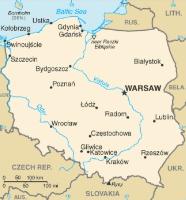WARSAW, Poland -- To defend against the potential threat of a nuclear attack from "rogue states," the United States has been working to shore up support for deploying 10 silo-based long-range interceptors in Poland and a mid-course tracking radar in the Czech Republic by 2013. After months of shuttle diplomacy and intense negotiations, U.S. Secretary of State Condoleeza Rice inked a deal with the Czechs on July 8 but failed to convince her Polish counterparts to host the project. For months, it appeared that Poland would easily accept U.S. plans. Undoubtedly, Poland is a strong U.S. ally and a vital contributor to transatlantic security, contributing a sizable contingency in Afghanistan and a vocal lobby for future eastward expansion of NATO. However, seeking millions of dollars in military aid, Polish Prime Minister Donald Tusk rebuffed the latest U.S. offer on July 4. To make matters more complicated, Polish Petroleum and Gas Mining (PGNiG), 85 percent of which is owned by the Polish state, is looking to Tehran as a source of energy. On June 30, the Polish daily Rzeczpospolita reported that PGNiG was "close" to securing a contract to extract liquefied natural gas (LNG) from Iran's Lavan gas field.
Poland Balances U.S. Missile Defense Plans and Energy from Iran

